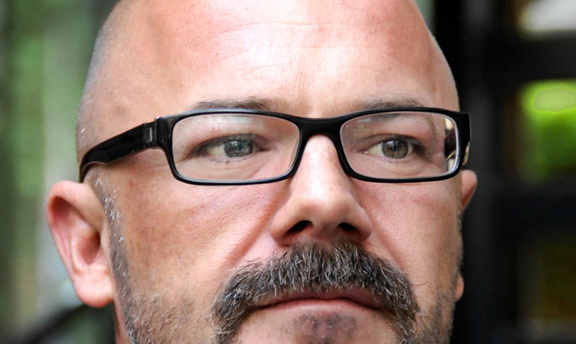As the United States continues to sort out what its laws and public policies concerning gender and sexuality will look like, all thinking persons must not only determine their own convictions, but they must also consider what role the government should play in this discussion. What kind of laws should be defended? What kind of policies should be resisted? Though people may come away with different conclusions, it is imperative that we promote honest, civil and constructive conversation.
Andrew Sullivan, openly gay author and editor known for his commitment to respectful dialogue, has encouraged those in the LGBT community to be understanding of those who may disagree and answer any questions they might have. Consider this blog post from 2014, in which Sullivan urges proponents of the transgender movement to do what is necessary to achieve what he deems progress (Source).
“Engaging the T”
There are few topics I feel nervous to write about on this blog, as you might have surmised over the years. But one of them is the question of transgender people. It’s a fascinating topic, but remains so completely fraught and riddled with p.c. neurosis that no writer wants to unleash the hounds of furious, touchy trans activism. And that’s the first thing to note here, I’d say. Any minority – especially a tiny one like gays or TV Academy Presents 10 Years After The Prime Time Closet – A History Of Gays And Lesbians On TV transgender people – has, at some point, to explain itself to the big, wide world. That’s not entirely fair but it’s unavoidable if you want a change in attitudes or an increase in understanding. And my view is that there is no need to be defensive about it. Most people are just completely ignorant, and have never met or engaged a trans person, and so their misconceptions and misunderstandings are inevitable and not self-evidently a matter of bigotry or prejudice. I think we should be understanding of this, as open as we can be, and answer the kinds of questions some might feel inappropriate or offensive. That’s the basis for dialogue, empathy and progress.
But this has not, alas, been the way in which the transgender movement has largely sought to engage the wider world (with some exceptions). Kevin Williamson notes how Laverne Cox, appearing as a trans person on the cover of Time, nonetheless refused to answer a question about whether she had had her genitals reassigned as too “invasive.” Sorry, Laverne. But if you’re out there explaining yourself, you’ve gotta explain all of it. And the elaborate and neurotic fixation on language – will writing “transgender” rather than “transgendered” reveal my inner bigot? – is now so neurotic even RuPaul has been cast aside as politically incorrect. The insistence that the question of transgender people is essentially the same as that of gay people – when they are quite clearly distinct populations with very different challenges – is also why we have the umbrella term “LGBT”. And so Kevin Williamson is not wrong, I think, to note the way in which politics has eclipsed the English language here and that language itself has become enmeshed in a rigid ideology:
The obsession with policing language on the theory that language mystically shapes reality is itself ancient — see the Old Testament — and sympathetic magic proceeds along similar lines, using imitation and related techniques as a means of controlling reality.
But Williamson is just as wrong in his brutal, even callous, denunciation of transgender people as acting out “delusions”. And he’s wrong not because he politically incorrect, but because he’s empirically off-base. He too is creating his own reality. For Williamson, it seems, you can only have one sex and it is dictated by your genitals. End of story. Naturally, he doesn’t address the question of what biological sex is when you are born with indeterminate genitals that are not self-evidently male or female. The intersex are a small minority – from 0.1 to 1.7 percent, depending on your definition – but in a country of 300 million, that adds up. And the experience of those people – especially those have been genitally mutilated to appear as one sex, while feeling themselves to be the other – is a vital part of understanding what gender and sex are.
Kevin may not like this – but it’s complicated.
We can see crucial differences between male and female brains, for example, and they do not always correspond to male and female genitals. Since by far the most important sexual organ is the brain, the possibilities of ambiguity are legion. And this is not a matter of pomo language games. The experience of a conflict between self-understood gender and assigned gender is real, and a source of great anguish. That human anguish is what we should seek to mitigate, it seems to me, rather than compound as Williamson does.
And as J. Brian Lowder notes, the insistence of many transgendered people on the need to permanently reconcile their physical bodies with their mental states is in some ways a rather conservative impulse. There’s a reason that Iran’s theocrats allow for sex-change operations but not gay relationships. The transgender desire not to be trans-gender but to be one gender physically and mentally is actually quite an affront to queer theorists for whom all gender and sex are social constructions. Many of these people want testosterone and estrogen and surgery to end their divided selves. And it doesn’t get more crudely biological and not-social than that.
Which means that there are also divisions within the trans world between those who might be able to pass completely as another gender, after reassignment surgery, and those whose visual ambiguity or androgyny will remain. Lowder quotes a trans artist thus:
If you don’t wish to own [tranny] or any other word used to describe you other than “male” or “female” then I hope you are privileged enough to have been born with an appearance that will allow you to disappear into the passing world or that you or your generous, supportive family are able to afford the procedures which will make it possible for you to pass within the gender binary system you are catering your demands to. If you’re capable of doing that then GO ON AND DISAPPEAR INTO THE PASSING WORLD!
This is the perennial question of a minority’s anxiety about sell-outs – whether it be expressed in the fights over how light-skinned some African-Americans are or how “masculine” gay men are or how feminine lesbians appear. In other words, this is a very complicated and sensitive area. But if we are to make progress in understanding – and Williamson’s piece shows how far we have yet to go – we have to let go of these insecurities and defensiveness and accept that no question about the transgendered is too dumb or too bigoted to answer.
Is the transgender movement mature enough to accept this and move forward? I guess we’ll soon find out.
—
Though Christians who uphold the church’s traditional views on sexuality and gender would completely disagree with Andrew Sullivan’s personal beliefs on these matters, they can and should appreciate his willingness to enter into polite discussion.
Just as those in the LGBT community need to be reminded of, as Andrew Sullivan says, what is necessary for dialogue, empathy and progress, so also do Christians committed to a biblical understanding of gender and sexuality need to be reminded that their conviction must be accompanied by compassion and a focus on Christ Himself.
To conclude this course, read the following charge by author, theologian and cultural commentator Russell Moore on how Christians should approach this topic (Source).
“What the Transgender Bathroom Debate Means for You”
What should the church do?
First, we must bear witness to the goodness of what it means to live as creatures, not as self-defining gods and goddesses. God created us as human, and within humanity as male and female (Gen. 1:27). We are all sinners, so we chafe against having ourselves defined by a Creator, and not by ourselves or our ideologies. Our nakedness shames us, because our physical difference reminds us that we are not self-contained. Man needs woman, and woman needs man. I really do not contain multitudes. My maleness and your femaleness aren’t about us at all. They fit us within a much larger stream—of a species by nature and of a communion by grace.
The church must teach God’s good creation design of male and female, yes. But, beyond that, the church should teach a Christian anthropology that shows us that living within creation limits is never easy for anyone. We are all seeking to transcend our limits in various ways. The way of discipleship is to settle on the fact that we serve a God who knows more about humanity, and more about us personally, than we know about ourselves.
At the same time, the church should not see everything through the grid of gender. The Sexual Revolution, chaotically, wants to tell us that gender means nothing and that gender means everything. Neither is true. We should recognize that unbiblical caricatures of masculinity and femininity were always harmful, but now are potentially deadly. The little girl in your church who doesn’t like princess movies or dolls, and who would rather spend a Saturday in the deer stand, increasingly now is told by the culture around her that maybe she’s not a woman at all. Only a church that defines its vision of masculinity and femininity from the Word of God, not from cultural tropes, can speak to her. If you don’t have a category for a rough-and-tumble woman, like Jael, or a harp-playing man, like David, your church is handing over your children to the gender ideologies of the moment.
The truth is that the male/female sex difference is objectively real. Biological science is built off of this reality. More importantly, the mystery of Christ tells us that the male/female binary points us beyond nature to the gospel itself (Eph. 5). We must tell the truth about this. John the Baptist lost his head for saying that Herod could not have his brother’s wife. Some now will be targeted as culturally unacceptable because they tell Herod he can’t be his brother’s wife. That will take courage and compassion and, above all, it will take Christ.









